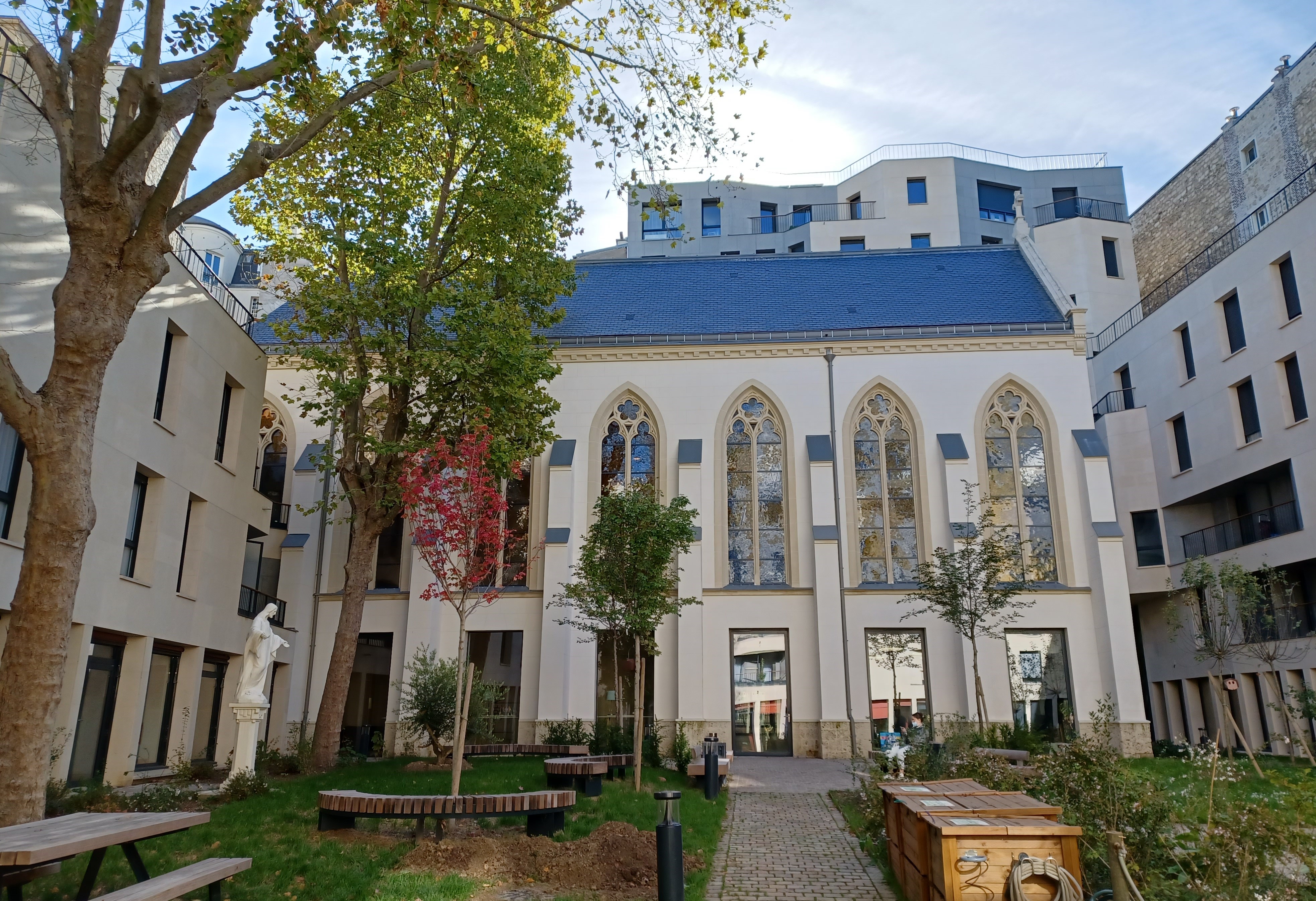
The Fearless Girl statue – a 4-foot bronze sculpture by Kristen Visbal — was installed in New York's Financial District, facing down the Charging Bull statue, 2017, and later was moved to outside the New York Stock Exchange. Many people view the statue as a symbol of female economic empowerment. (Unsplash/Daniel Lloyd Blunk-Fernández)
The founding story of many women's religious communities goes like this: A small number of sisters began ministering to those in need with only their determination to fulfill the demands of the Gospel. They lived in inadequate accommodations; they had no financial security; they depended on the goodwill of others.
Now, far removed from those humble beginnings, women religious are divesting of land and buildings and ministerial administration as their membership declines and ages. Congregations prioritize funding retirement accounts as the earning potential of members decreases rapidly.
Where is the transformative power in this story?
Extrapolating from Cynthia Bourgeault's The Holy Trinity and the Law of Three, when a third, or neutralizing, force brings two other forces into relationship, it catalyzes a "new arising." While the brilliant purpose of Bourgeault's book is to bring to light the overlooked dynamism of the Holy Trinity and its cosmic implications, I am borrowing the concept to illustrate the potential of women religious if we choose to be a third force. "No third force, no action, no new arising," Bourgeault writes. An illustration: Red/yellow/paintbrush is a dynamic triad because the third force, the paintbrush, creates a new arising: orange.
Collectively women religious have the potential to be that third force in this triad: extractive economy/solidarity economy/women religious. We can help create a new economic arising.
While we engage corporate consulting firms to help us manage our assets, about 53 percent of Black and 64 percent of Latino workers in the United States have no employer-provided retirement plan, to say nothing of the staggering numbers of women, children and men who live in poverty in the wealthiest country in the world. These firms are primarily incentivized to maximize financial returns and they are often ill-equipped to go beyond screening out certain investments based on criteria we provide, rather than actively putting our assets to work for a new economic arising.
We live in a culture of fear that thrives by hyping scarcity and insecurity. To reshape it as a culture of "enoughness" and well-being, we must recognize where our actions are shaped more by perceived fear than by the Gospels. We begin by questioning our questions. Rather than asking "How do we secure our assets?" we might ask, "How do we as women religious use and share our assets in a way that creates a more secure world for others while at the same time meeting our own needs?"
I believe that if we consider less familiar but more Gospel-principled alternatives in making choices about managing our physical assets and investing our money, our stories will continue to be transformative.
Our life's meaning as women religious disproves the basic tenets of neoliberal economics: that human beings are motivated above all by self-interest, that consumerism defines us and that competition characterizes our relationships. Altruism and concern for the common good can and do exist; Jesus was right. In a 2019 TED talk entrepreneur Nick Hanauer said, "More and more of us are coming to realize that it isn't capital that creates economic growth, it's people; and it isn't self-interest that promotes the public good, it's reciprocity; and it isn't competition that produces our prosperity, it's cooperation."

The Dominican Sisters of the Presentation took a proactive approach to how to use their Paris property as their membership dwindled. Pictured here is their Maison St.-Charles in the 15th Arrondissement, a facility that houses sisters as well as people who need low-cost housing, a co-working space, three meeting rooms for rent and 15 guest rooms. (Elisabeth Auvillain)
Our moral and ethical responsibility includes to whom and for what purpose we sell our assets, as well as where and how we invest our money. We care for the victims of the neoliberal economic policies under which we live, including our ravaged earth. We participate in vigils and sign petitions and march in protest of the effects of these policies. But our power to create a new arising will grow only when we stop making decisions that sustain these destructive and extractive economic policies that decrease or even nullify the effectiveness of our ministries and marches.
We also have the responsibility to understand who makes unjust economic policy, for whose benefit it is created and how it is implemented so that we can advocate for policies that benefit the many as well as the few. We must then write, blog and speak about the alternative choices women religious are making and why those choices matter to all of us and our earth.
Important books to read on the topic include:
- Cathonomics: How Catholic Tradition Can Create a More Just Economy by Anthony Annett (Elizabeth Garlow, co-founder of Francesco Collaborative, has interviewed Annett.)
- Doughnut Economics: Seven Ways to Think Like a 21st-Century Economist by Kate Raworth (She gave a 2018 TED talk on the topic.)
- The Shock Doctrine: The Rise of Disaster Capitalism by Naomi Klein
Many of our communities have long practiced socially responsible investing and have used our role as shareholders to challenge unjust corporate policies and practices and hold corporate leadership accountable on a wide range of issues. Efforts to move corporate America are crucial, but they alone will not change systems. We must also put our assets to alternative uses that support social equity through active participation in the solidarity economy. There are many alternatives to the neoliberal economic policies that drive corporate America.
The Francesco Collaborative's Garlow told me in a personal email:
This is the new horizon: being a lighthouse for a flourishing future through investing directly in new forms of economy. We must take to heart the Catholic Social Teaching principles of solidarity and subsidiarity, particularly by investing in alternative forms of governance and ownership. We won't change the economy at a profound level until we change power dynamics.
Advertisement
Let us not forget that we are the beneficiaries of "religious privilege" and white privilege. Many people — because of race, social class, ethnicity or disability — suffered a lifetime of severely limited earning potential and have no savings at all, let alone retirement accounts. No national fundraising campaigns support their retirement. They have no land or buildings to sell for significant profit. It is our responsibility to make our assets work not only for us but also for them.
In addition to the Francesco Collaborative and Economy of Francesco Initiative other groups accompany asset stewards on this journey to leverage our power for good and to change our economic system. They include:
- Seed Commons Community Wealth Cooperative "is a national network of locally rooted, non-extractive loan funds that brings the power of big finance under community control."
- The Nuns and Nones Land Justice Project works with religious communities, "seeking to expand available options that protect and regenerate land, while also repairing centuries of racial harm."
- The New Economy Coalition includes "200+ organizations building the solidarity economy in the United States and showing that another world is not only possible — it's already happening."
We can train ourselves to see through the culture of fear in which we are immersed. We can learn to think in a new way. We can study, dialogue, network and form think tanks. The legitimacy that a body as strong and influential as women religious could give to a new arising, an economic arising, by means of our experience, our commitment and our resources, is unparalleled. All we have to do is be the paintbrush.






